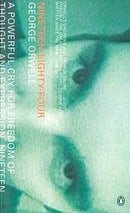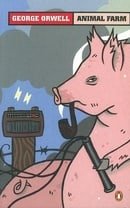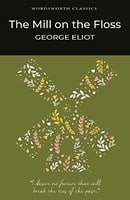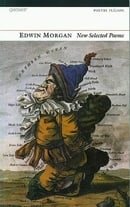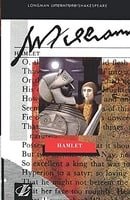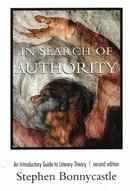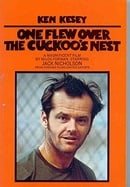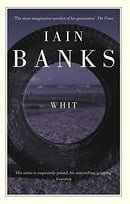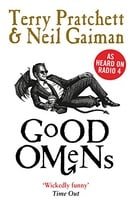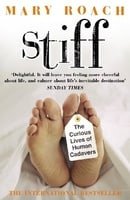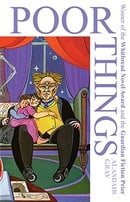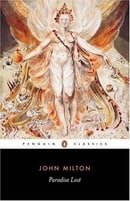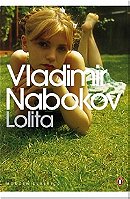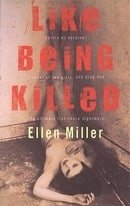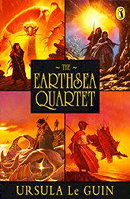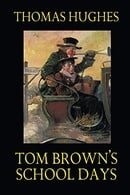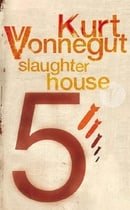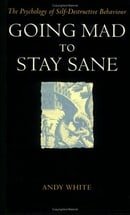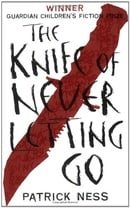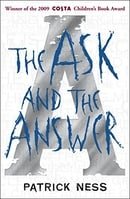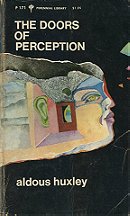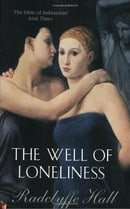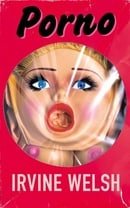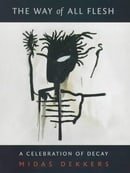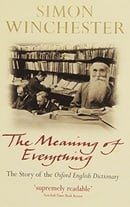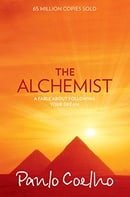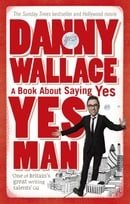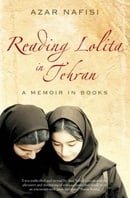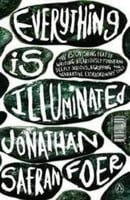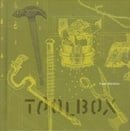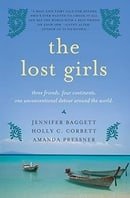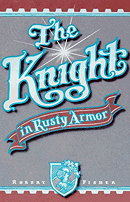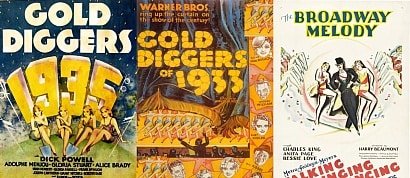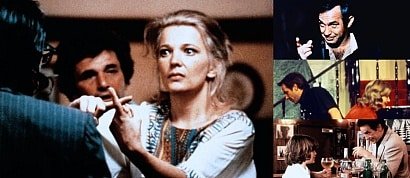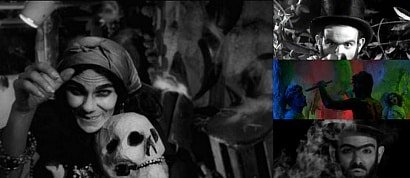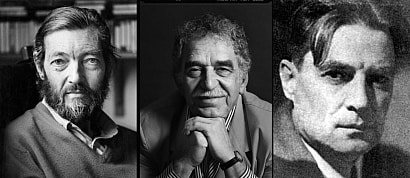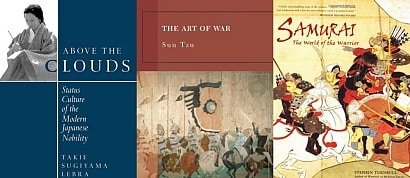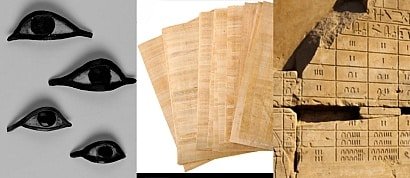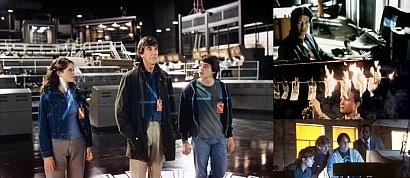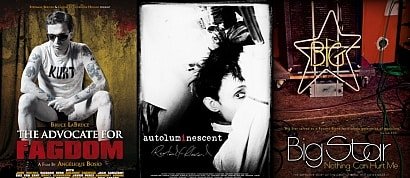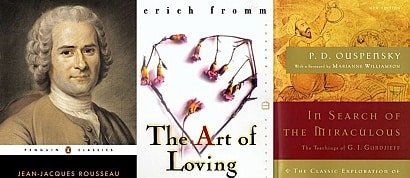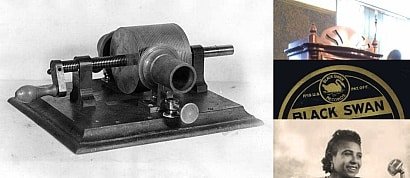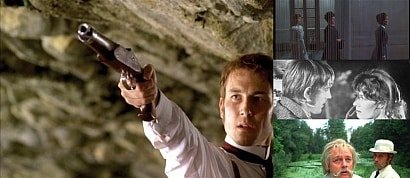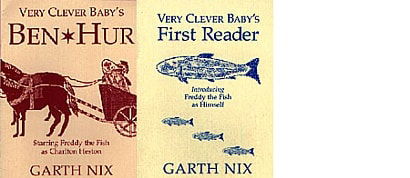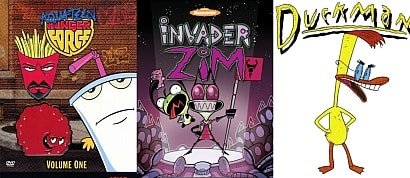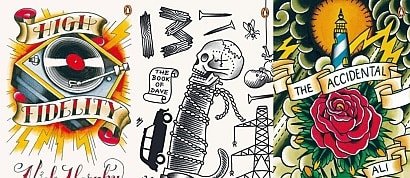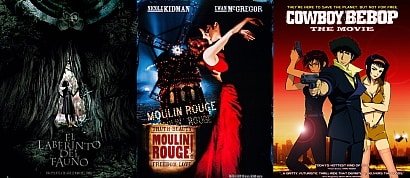Quotes
Sort by:
Showing 42 items
Rating:
List Type:
On the Road - Jack Kerouac
"...I shambled after as I've beeing doing after people who interest me, because the only people for me are the mad ones, the ones who are mad to live, made to talk, mad to be saved, desirous of everything at the same time, the ones who never yawn or say a commonplace thing, but burn, burn, burn like fabulous yellow roman candles exploding like stars and in the middle you see the blue centrelight pop and everybody goes 'Awww!'" p. 11
"But no matter, the road is life." p. 199
"You don't die enough to cry." p. 201
"Something would come of it yet. There's always a little more, a little further - it never ends." p. 227
"But no matter, the road is life." p. 199
"You don't die enough to cry." p. 201
"Something would come of it yet. There's always a little more, a little further - it never ends." p. 227
tartan_skirt's rating:


Agnes Grey (Wordsworth Classics) - Anne Bronte
"I object to any one so devoting himself or herself to study as to lose sight of everything else. Except under peculiar circumstances, I consider very close and constant study as a waste of time, and an injury to the mind as well as the body." p. 114
tartan_skirt's rating:


The Language of the Night: Essays on Fantasy and Science Fiction... - Ursula K. Le Guin
"Apollo, the god of light, of reason, of proportion, harmony, number - Apollo blinds those who press too close in worship. Don't look straight at the sun. Go into a dark bar for a bit and have a beer with Dionysus, every now and then." - 'Introduction to the Left Hand of Darkness'
1984 Nineteen Eighty-Four - George Orwell
"Thoughtcrime does not entail death: thoughtcrime IS death." p. 30
"Freedom is the freedom to say two plus two make four. If that is granted, all else follows." p. 84
"You're only a rebel from the waist downwards." p. 163
"Confession is not betrayal. What you say doesn't matter: only feelings matter. If they could make me stop loving you - that would be the real betrayal." p. 173
"Freedom is the freedom to say two plus two make four. If that is granted, all else follows." p. 84
"You're only a rebel from the waist downwards." p. 163
"Confession is not betrayal. What you say doesn't matter: only feelings matter. If they could make me stop loving you - that would be the real betrayal." p. 173
tartan_skirt's rating:


Animal Farm: A Fairy Story - George Orwell
"All animals are equal, but some animals are more equal than others." p. 90
tartan_skirt's rating:


The Mill on the Floss (Wordsworth Classics) - George Eliot
"Maggie was incessantly tossing her head to keep the dark heavy locks out of her gleaming black eyes-an action which gave her very much the air of a small pony." p. 9
"When a workman knows the use of his tools, he can make a door as well as a window." p. 18
"We learn to restrain ourselves as we get older. We keep apart when we have quarrelled, express ourselves in well-bred phrases, and in this way preserve a dignified alienation, showing much firmness on one side, and swallowing much grief on the other." p. 33
"...a ripe scholar doubtless, when first appointed; but all ripeness beneath the sun has a further stage less esteemed in the market." p. 156
"War, like other dramatic spectacles, might possibly cease for a want of a "public"." p.163
"When a workman knows the use of his tools, he can make a door as well as a window." p. 18
"We learn to restrain ourselves as we get older. We keep apart when we have quarrelled, express ourselves in well-bred phrases, and in this way preserve a dignified alienation, showing much firmness on one side, and swallowing much grief on the other." p. 33
"...a ripe scholar doubtless, when first appointed; but all ripeness beneath the sun has a further stage less esteemed in the market." p. 156
"War, like other dramatic spectacles, might possibly cease for a want of a "public"." p.163
tartan_skirt's rating:


New Selected Poems (Poetry pleiade) - Edwin Morgan
"Let the storm wash the plates." p. 40 Final line of Strawberries, a poem by Edwin Morgan.
tartan_skirt's rating:


Hamlet (New Longman Literature 14-18) - Julia Markus,Dr Paul Jordan,Roy Blatchford,William Shakespeare
Polonius: Do you know me, my lord?
Hamlet: Excellent well; you are a fishmonger. p. 121 Act II, scene ii, lines 187-8
Hamlet: To be, or not to be - that is the question;
Whether 'tis nobler in the mind to suffer
The slings and arrows of outrageous fortune,
OR to take arms against a sea of troubles,
And by opposing end them? To die, to sleep -
No more; and by a sleep to say we end
The heart-ache and the thousand natural shocks
That flesh is heir to. 'Tis a sonsummation
Devoutly to be wish'd. To die, to sleep;
To sleep, perchance to dream. Ay, there's the rub;
For in that sleep of death what dreams may come,
When we have shuffled off this mortal coil,
Must give us pause. There's the respect
That makes calamity of so long life;
For who would bear the whips and scorns of time,
Th' oppressor's wrong, the proud man's contumely,
The pangs of despis'd love. the law's delay,
The insolence of office, and the spurns
That patient merit of th' unworthy takes,
When he himself might quietus make
With a bare bodkin? Who would these fardels bear,
To grunt and sweat under a wearly life,
But that the dread of something after daeth -
The undiscover'd country, from whose bourn
No traveller returns - puzzles the will,
And makes us rather bear those ills we have
Than fly to others that we know not of?
Thus conscience does make cowards of us all;
And thus the native hue of resolution
Is sicklied o'er eith the pale cast of thought,
And enterprises of great pitch and moment,
With this regard, their currents turn awry
And lose the name of action. - Soft you now!
The fair Ophelia. - Nymph, in the orisons
Be all my sins rememb'red. p. 169-71 Act III, scene i, lines 63-97
Hamlet: Excellent well; you are a fishmonger. p. 121 Act II, scene ii, lines 187-8
Hamlet: To be, or not to be - that is the question;
Whether 'tis nobler in the mind to suffer
The slings and arrows of outrageous fortune,
OR to take arms against a sea of troubles,
And by opposing end them? To die, to sleep -
No more; and by a sleep to say we end
The heart-ache and the thousand natural shocks
That flesh is heir to. 'Tis a sonsummation
Devoutly to be wish'd. To die, to sleep;
To sleep, perchance to dream. Ay, there's the rub;
For in that sleep of death what dreams may come,
When we have shuffled off this mortal coil,
Must give us pause. There's the respect
That makes calamity of so long life;
For who would bear the whips and scorns of time,
Th' oppressor's wrong, the proud man's contumely,
The pangs of despis'd love. the law's delay,
The insolence of office, and the spurns
That patient merit of th' unworthy takes,
When he himself might quietus make
With a bare bodkin? Who would these fardels bear,
To grunt and sweat under a wearly life,
But that the dread of something after daeth -
The undiscover'd country, from whose bourn
No traveller returns - puzzles the will,
And makes us rather bear those ills we have
Than fly to others that we know not of?
Thus conscience does make cowards of us all;
And thus the native hue of resolution
Is sicklied o'er eith the pale cast of thought,
And enterprises of great pitch and moment,
With this regard, their currents turn awry
And lose the name of action. - Soft you now!
The fair Ophelia. - Nymph, in the orisons
Be all my sins rememb'red. p. 169-71 Act III, scene i, lines 63-97
tartan_skirt's rating:


In Search of Authority: An Introductory Guide to Literary Theory... - Stephen Bonnycastle
"...the experience of dialogue is one of the finest things that university education in the humanities has to offer. It can give feelings of wholeness, concentration, and deep connection with another person. The concept of dialogue can also be a paradigm for other activities; it is not so much an idea as an experience that can be charged with emotion and the feeling of discovery." p. 49
tartan_skirt's rating:


The Hitchhiker's Guide To The Galaxy - Douglas Adams
"Ford," he said, "you're turning into a penguin. Stop it." Chapter 10
"There is an art to flying, or rather a knack. The knack lies in learning how to throw yourself at the ground and miss. Clearly, it is this second part, the missing, that provides the difficulties."
"There is an art to flying, or rather a knack. The knack lies in learning how to throw yourself at the ground and miss. Clearly, it is this second part, the missing, that provides the difficulties."
One Flew Over the Cuckoo's Nest - Ken Kesey
"...psycho-ceramics, the cracked pots of mankind." p. 185
tartan_skirt's rating:


Whit - Iain Banks
"Women have the power of creation in them; men have to fantasise about it, create Creation itself, just to compensate; ovary envy." p. 235
tartan_skirt's rating:


Good Omens - Terry Pratchett,Neil Gaiman
"Most books on witchcraft will tell you that witches work naked. This is because most books on witchcraft are written by men." p. 87
tartan_skirt's rating:


Stiff: The Curious Lives of Human Cadavers - Mary Roach
"We are biology. We are reminded of this at the beginning and the end, at birth and death. In between we do what we can to forget." p. 84
tartan_skirt's rating:


Poor Things - Alasdair Gray
"Nature gives children great emotional resilience to help them survive the oppressions of being small, but theseoppressions still make them into slightly insane adults, either mad to seize all the power they once lacked or (more usually) mad to avoid it." p. 69
tartan_skirt's rating:


Pale Fire (Penguin Modern Classics) - Vladimir Nabokov
"...the basic fact that 'reality' is neither the subject nor the object of true art which creates its own special reality having nothing to do with the average 'reality' perceived by the communal eye." p. 106
"Resemblances are the shadows of differences. Different people see different similarities and similar differences." p. 208
"My notes and self are petering out." p. 235
"Resemblances are the shadows of differences. Different people see different similarities and similar differences." p. 208
"My notes and self are petering out." p. 235
tartan_skirt's rating:


Paradise Lost (Penguin Classics Series) - John Milton
"The mind is its own place, and in itself
Can make a Heav'n of Hell, a Hell of Heav'n." p. 12
Can make a Heav'n of Hell, a Hell of Heav'n." p. 12
tartan_skirt's rating:


Lolita (Penguin Classics) - Vladimir Nabokov
"Lolita, light of my life, fire of my loins. My sin, my soul. Lo-lee-ta: the tip of the tongue taking a trip of three steps down the palate to tap, at three, on the teeth. Lo. Lee. Ta." p. 1
tartan_skirt's rating:


Like Being Killed (Virago V) - Ellen Miller
"I remembered then, as I approached Seventh Street, which seemed oddly, anachronistically populated, an article I had read once in a medical journal, Morbidity and Mortality, about cell suicide. Apparently, every cell in the human body is innately programmed to destroy itself unless it receives signals to stay alive from neighbouring cells, through a process known as outside-in signal transduction. If a cell is invaded by a virus, the cell kills itself, preventing the virus from spreading. The hands of the human embryo begin as webbed, spadelike flippers until cell death sculpts individual fingers. If an injured cell kills itself, its damaged contents do not spill out and inflame neighbouring tissue. When cancer cells proliferate unchecked, as white corpuscles do in leukemia, they kill their hosts. Suicide, then, was an intelligent, inevitable, honourable cellular act, prevented only when a cell's neighbouring partner cells intercept and tell the cell not to do it. Scientists had separated individual cells from their neighbours, supplying each cell with all the nutrients it needed for survival. Each cell in isolation killed itself within a day or two. In contrast, if the cell's neighbours were added to the dish, the cells survived. Isolated from its life enhancing partner cells, a solitary cell is programmed to a default suicide setting and will dispatch itself quickly if it ends up somewhere it isn't supposed to be, like a petri dish or a rough neighbourhood." p. 243
tartan_skirt's rating:


Watership Down - Richard Adams_VI
"Creatures that have neither clocks nor books are alive to all manner of knowledge about time and weather; and about direction too, as we know from their extraordinary migratory and homing journeys." p. 56
tartan_skirt's rating:


"An act is not, as young men think, like a rock that one picks up and throws, and hits or misses, and that's the end of it. When that rock is lifted the earth is lighter, the hand that bears it heavier. When it is thrown the circuits of the stars respond, and where it strikes or falls the universe is changed. On every act the balance of the whole depends. The winds and seas, the powers of water and earth and light, all that these do, and all that the beasts and green things do, is well done, and rightly done. All these act within the Equilibrium. [...] We must learn to keep the balance. Having intelligence, we must not act in ignorance." p. 361
"The day had been long, and full of dragons." p. 439
"The day had been long, and full of dragons." p. 439
tartan_skirt's rating:


Tom Brown's School Days - Thomas Hughes
"Life isn't all beer and skittles..." chap. 2
tartan_skirt's rating:


The Gormenghast Trilogy - Mervyn Peake
"'Glorious', said Steerpike, 'is a dictionary word. We are all imprisoned by the dictionary. We choose out of that vast, paper-walled prison our convicts, the little black printed words, when in truth we need fresh sounds to utter, new enfranchised noises which would produce a new effect. In dead and shackled language, my dears, you are glorious, but oh, to give vent to a brand new sound that might convince you of what I really think of you, as you sit there in your purple splendour, side by side! But no, it is impossible. Life is too fleet for onomatopoeia. Dead words defy me. I can make no sound, dear ladies, that is apt.'" p. 207
"... as he gazed absently past himself in the mirror at Flay, another comber of far pleasure followed the first, for his books came suddenly before his eyes, row upon row of volumes, row upon priceless row of calf-bound Thought, of philosophy and fiction, of travel and fantasy; the stern and the ornate, the moods of gold or green, of sepia, rose, or black; the picaresque, the arabesque, the scientific - the essays, the poetry and the drama.
All this, he felt, he would now re-enter. He could inhabit the world of words, with, at the back of his melancholy, a solace he had not known before." p. 214
"The long shelves surrounded them, tier upon tier, circumscribing their world with a wall of other worlds imprisoned yet breathing among the network of a million commas, semicolons, full stops, hyphens and every other sort of printed symbol." p. 221
"corpses of thought" (burnt books) p. 235
"... as he gazed absently past himself in the mirror at Flay, another comber of far pleasure followed the first, for his books came suddenly before his eyes, row upon row of volumes, row upon priceless row of calf-bound Thought, of philosophy and fiction, of travel and fantasy; the stern and the ornate, the moods of gold or green, of sepia, rose, or black; the picaresque, the arabesque, the scientific - the essays, the poetry and the drama.
All this, he felt, he would now re-enter. He could inhabit the world of words, with, at the back of his melancholy, a solace he had not known before." p. 214
"The long shelves surrounded them, tier upon tier, circumscribing their world with a wall of other worlds imprisoned yet breathing among the network of a million commas, semicolons, full stops, hyphens and every other sort of printed symbol." p. 221
"corpses of thought" (burnt books) p. 235
tartan_skirt's rating:


Slaughterhouse 5 (Vintage Crucial Classics) - Kurt Vonnegut
"I have this disease late at night sometimes, involving alcohol and the telephone. I get drunk, and I drive my wife away with a breath like mustard gas and roses. And then, speaking gravely and elegantly into the telephone, I ask the telephone operators to connect me with this friend or that one, from whom I have not heard in years." p. 3
tartan_skirt's rating:


"The pain, the despair, the craziness of self-destructive behaviour is as loud a statement as it is possible to make that the soul is in exile and under attack. Very often our problem is not so much that we suffer from self-destructiveness, but that we hold it at arm's length and in so doing deprive ourselves of its instruction." p. 7
"Hatred is a necessary part of life. It helps us know who we are by first establishing what we are not." p. 46
"Without the load of life's burden we lose our footing on the ground of real human experience. Deprived of the gravity of authentic realities [...] we remain floating off in a land of fantasy and compensatory idealisations where the paradoxes of the real world cannot be contaied, nor any real growth sustained." p. 62
"We ask not who we are but how we appear. Our focus is not on our experience but on how others experience us. We spend the majority of our waking moments anxiously preoccupied with the impression we create on others and what kind of image we are projecting. [...] we cease to live life and become onlookers of life. We turn ourselves into objects or commodities to be judged and appraised and do the same to others in turn, perpetuating the depersonalisation and humiliation that our fantasy-self was itself designed to obscure." p. 64
"Most of us go into therapy hoping to be relieved of our suffering. Little do we suspect our attachment to suffering or the sense of identity it provides. Our romantic fantasy that all we wish for is to grow and change is precisely what prevents us from becoming ourselves. [...] Such changes also bring to mind the fact that everything ultimately ends, and in the wings of life's play is awareness of the final curtain. Our death anxiety is something we make a life project of keeping at arm's length[...]. [...] Life may be a nightmare in the process, but at least it is a stable nightmare and a dream of something." p. 92-3
"Suffering is the last cry of the true self before it fades from view, taking our aliveness and sense of self with it." p. 103
"Hatred is a necessary part of life. It helps us know who we are by first establishing what we are not." p. 46
"Without the load of life's burden we lose our footing on the ground of real human experience. Deprived of the gravity of authentic realities [...] we remain floating off in a land of fantasy and compensatory idealisations where the paradoxes of the real world cannot be contaied, nor any real growth sustained." p. 62
"We ask not who we are but how we appear. Our focus is not on our experience but on how others experience us. We spend the majority of our waking moments anxiously preoccupied with the impression we create on others and what kind of image we are projecting. [...] we cease to live life and become onlookers of life. We turn ourselves into objects or commodities to be judged and appraised and do the same to others in turn, perpetuating the depersonalisation and humiliation that our fantasy-self was itself designed to obscure." p. 64
"Most of us go into therapy hoping to be relieved of our suffering. Little do we suspect our attachment to suffering or the sense of identity it provides. Our romantic fantasy that all we wish for is to grow and change is precisely what prevents us from becoming ourselves. [...] Such changes also bring to mind the fact that everything ultimately ends, and in the wings of life's play is awareness of the final curtain. Our death anxiety is something we make a life project of keeping at arm's length[...]. [...] Life may be a nightmare in the process, but at least it is a stable nightmare and a dream of something." p. 92-3
"Suffering is the last cry of the true self before it fades from view, taking our aliveness and sense of self with it." p. 103
tartan_skirt's rating:


"It's like the song of a family where everything's always all right, it's a song of belonging that makes you belong just by hearing it, it's a song that'll always take care of you and never leave you. If you have a heart, it breaks, if you have a heart that's broken, it fixes." p.239
"Her words are not her words and they're coming outta her mouth sounding like a lie but making a new truth, creating a different world where my ma is talking directly to me, Viola speaking with a voice not her own and the world, for a little while at least, the world is all for me, the world's being made just for me." p.414
"Her words are not her words and they're coming outta her mouth sounding like a lie but making a new truth, creating a different world where my ma is talking directly to me, Viola speaking with a voice not her own and the world, for a little while at least, the world is all for me, the world's being made just for me." p.414
tartan_skirt's rating:


"Cuz how do you know yer alive if you don't hurt?" p. 18
tartan_skirt's rating:


The Doors of Perception: And Heaven and Hell - Aldous Huxley
"We live together, we act on, and react to, one another; but always and in all circumstances we are by ourselves." p. 3
"However expressive, symbols can never be the things they stand for. p. 15
"However expressive, symbols can never be the things they stand for. p. 15
tartan_skirt's rating:


The Well of Loneliness - Radclyffe Hall, Alfred Hitchcock,Alfred Hitchcock
"She was sad in spirit and mind and body - her body felt dejected, she was sad all over." p. 139
"She would go to the girl and say: 'I know. I know all about it, you can trust me Stephen.' And then she would counsel and try to give courage: 'You're neither unnatural, nor abominable, nor mad; you're as much a part of what people call nature as anyone else; only you're unexplained as yet - you've not got your niche in creation. But some day that will come, and meanwhile don't shrink from yourself, but just face yourself calmly and bravely. Have courage; do the best you can with your burden. But above all be honourable. Cling to your honour for the sake of those others who share the same burden. For their sakes show the world that people like you and they can be quite as selfless and fine as the rest of mankind. Let your life go to prove this - it would be a really great life-work, Stephen.'" p. 153-4
"And hearing him, Stephen found herself thinking that all men had something simple about them; something that took pleasure in the things that were blameless, that longed, as it were, to contact with Nature. Martin had loved huge, primitive trees; and even this mean little man loved his roses." p. 158
"There is something that mankind can never destroy in spite of an unreasoning will to destruction, and this is its own idealism, the integral part of its very being." p. 286
"She would go to the girl and say: 'I know. I know all about it, you can trust me Stephen.' And then she would counsel and try to give courage: 'You're neither unnatural, nor abominable, nor mad; you're as much a part of what people call nature as anyone else; only you're unexplained as yet - you've not got your niche in creation. But some day that will come, and meanwhile don't shrink from yourself, but just face yourself calmly and bravely. Have courage; do the best you can with your burden. But above all be honourable. Cling to your honour for the sake of those others who share the same burden. For their sakes show the world that people like you and they can be quite as selfless and fine as the rest of mankind. Let your life go to prove this - it would be a really great life-work, Stephen.'" p. 153-4
"And hearing him, Stephen found herself thinking that all men had something simple about them; something that took pleasure in the things that were blameless, that longed, as it were, to contact with Nature. Martin had loved huge, primitive trees; and even this mean little man loved his roses." p. 158
"There is something that mankind can never destroy in spite of an unreasoning will to destruction, and this is its own idealism, the integral part of its very being." p. 286
tartan_skirt's rating:


"Hunger reduces one to an utterly spineless, brainless condition, more like the after-effects of influenza than anything else. It is as though one had been turned into a jellyfish, or as though all one's blood had been pumped out and luke-warm water substituted." p. 34
"Work in the hotel taught me the true value of sleep, just as being hungry had taught me the true value of food. Sleep had ceased to be a mere physical necessity; it was something voluptuous, a debauch more than a relief." p 82
"Work in the hotel taught me the true value of sleep, just as being hungry had taught me the true value of food. Sleep had ceased to be a mere physical necessity; it was something voluptuous, a debauch more than a relief." p 82
tartan_skirt's rating:


Porno - Irvine Welsh
"Coke bores me, it bores us all. We're jaded cunts, in a scene we hate, a city we hate, pretending that we're at the centre of the universe, trashing ourselves with crap drugs to stave off feeling that real life is happening somewhere else, aware that all we're doing is feeding that paranoia and disenchantment, yet somehow we're too apathetic to stop. Cause, sadly, there's nothing else of interest to stop for." p. 4-5
"I want to devour him, but there's something granite-cold in those eyes, it makes me hold off. They are looking through me, into me. Then suddenly they fill with an incredible warmth which would have been inconceivable only a second ago. The glow from them is so strong I'm mesmerised, feeling myself to be formless, of no magnitude or density. All I'm aware of from within me is my hunger for him. Then I hear him say something, a foreign phrase, before both his hands clasp softly onto the sides of my face. He stalls for a while, his abundant, ebony eyes drinking me and then he kisses me: on the forehead, then both cheeks, each kiss strong and soft, exploding with precisions, sending thrilling data to the now nebulous core of me." p. 222
"Fuck me, this was the lassie I was supposed to meet years ago. We would have ruled the world. Still will." p. 246
"I'm looking at his mocking face, composing myself by thinking about the strange relationship we had, no less arcane through us having been apart over the years. I suppose he was a bit like me, we both knew that decadence was a bad habit for council tenants. A ridiculous habit in fact. The raison d'être of our class was simply to survive. Fuck that; our punk generation, not only did we thrive, we even had the audacity tae be disillusioned. From an early age Sick Boy and I were twisted soul brothers. The scorn, the sneers, the irony, the piss-taking; we had constructed our wee private world long before drink or drugs ever came along and helped us refine, and gave the permission to wholeheartedly live in it. We strutted around dripping cynicism so deep, scornful and profound we felt that nobody got us; parents, siblings, neighbours, teachers, geeks, hard-cunts, or hipsters. But it wasn't easy to develop a repertoire of decadence in the Fort or the Banana flats. Drugs were the easiest option. Then they started to take, began to gnaw away at the dreams they once nourished, nurtured and fortified, crumbling at the life they had allowed us access to. And it all got too much like hard fuckin work, and hard work was something we both strove to avoid. Now what I fear isn't the heroin, it's not the drugs, but this weird symbolic relationship we have with each other. I'm concerned that it has a dynamic which will draw us right back into the slaughters, now more than ever, after what Spud told me about Franco." p. 365
"I want to devour him, but there's something granite-cold in those eyes, it makes me hold off. They are looking through me, into me. Then suddenly they fill with an incredible warmth which would have been inconceivable only a second ago. The glow from them is so strong I'm mesmerised, feeling myself to be formless, of no magnitude or density. All I'm aware of from within me is my hunger for him. Then I hear him say something, a foreign phrase, before both his hands clasp softly onto the sides of my face. He stalls for a while, his abundant, ebony eyes drinking me and then he kisses me: on the forehead, then both cheeks, each kiss strong and soft, exploding with precisions, sending thrilling data to the now nebulous core of me." p. 222
"Fuck me, this was the lassie I was supposed to meet years ago. We would have ruled the world. Still will." p. 246
"I'm looking at his mocking face, composing myself by thinking about the strange relationship we had, no less arcane through us having been apart over the years. I suppose he was a bit like me, we both knew that decadence was a bad habit for council tenants. A ridiculous habit in fact. The raison d'être of our class was simply to survive. Fuck that; our punk generation, not only did we thrive, we even had the audacity tae be disillusioned. From an early age Sick Boy and I were twisted soul brothers. The scorn, the sneers, the irony, the piss-taking; we had constructed our wee private world long before drink or drugs ever came along and helped us refine, and gave the permission to wholeheartedly live in it. We strutted around dripping cynicism so deep, scornful and profound we felt that nobody got us; parents, siblings, neighbours, teachers, geeks, hard-cunts, or hipsters. But it wasn't easy to develop a repertoire of decadence in the Fort or the Banana flats. Drugs were the easiest option. Then they started to take, began to gnaw away at the dreams they once nourished, nurtured and fortified, crumbling at the life they had allowed us access to. And it all got too much like hard fuckin work, and hard work was something we both strove to avoid. Now what I fear isn't the heroin, it's not the drugs, but this weird symbolic relationship we have with each other. I'm concerned that it has a dynamic which will draw us right back into the slaughters, now more than ever, after what Spud told me about Franco." p. 365
tartan_skirt's rating:


“The “Stairway of Life” has disappeared from our sitting rooms and as a result we’ve lost half our lives. Old age is no longer good or bad, it’s simply denied.” p. 8
“To be attractive you also have to be a bit repulsive. There always has to be something ambiguous in the object of one’s love, whether it be a toad or a person.” p.43
"Everything that's whole has to break down [...] You can only be whole for a short time. Wholeness is an exceptional state, as fragile as a house of cards - or me. Once I was dead, now I'm here for a short time, and before long I'll be dead again, but then forever. That's the way it works, for everything. First there's nothing, then there's something, then there's nothing again. Nothing lasts." p. 59
"Nostra culpa. Man destroys his own creations. As children, sooner or later we break the toys we love most." p. 63
“To be attractive you also have to be a bit repulsive. There always has to be something ambiguous in the object of one’s love, whether it be a toad or a person.” p.43
"Everything that's whole has to break down [...] You can only be whole for a short time. Wholeness is an exceptional state, as fragile as a house of cards - or me. Once I was dead, now I'm here for a short time, and before long I'll be dead again, but then forever. That's the way it works, for everything. First there's nothing, then there's something, then there's nothing again. Nothing lasts." p. 59
"Nostra culpa. Man destroys his own creations. As children, sooner or later we break the toys we love most." p. 63
tartan_skirt's rating:


The Meaning of Everything: The Story of the Oxford English Dictionary... - Simon Winchester
"For English is a language that simply cannot be fixed, nor can its use ever be absolutely laid down. It changes constantly; it grows with an almost exponential joy. It evolves eternally; its words alter their senses and their meanings subtly, slowly or speedily according to fashion and need. Dictionaries that record and catalogue the language thus cannot ever be prescriptive; they must always be entirely descriptive, telling of the language as it is, not as it should be." p. 29
tartan_skirt's rating:


Yes Man - Danny Wallace
"It was still sunny as I walked down Regent Street, and I was smiling. Since my scratchcard win, I'd started to wonder something... what if, potentially, every single moment I was awake could lead to somewhere wonderful? What if all I had to do was keep my eyes wide open and welcoming? After all, the man on the bus had made me realised that sometimes those little negatives of daily life don't have to be negatives at all. The crush of the tube, or the bus that doesn't stop for you, or the nightclub that won't let you in... before, I'd thought of those as self-contained little moments. I'd never really considered that they might be beginnings; that they might lead somewhere; that they might be for the best." p. 68-9
"It's funny, writing a diary. We assume that all experiences are our own. That we're unique, and they're unique to us. But every thought we've ever had, everything we've ever said, every time we've surprised ourselves with a new experience or idea, every memory we've made, every story we've heard, or told, or been part of... it's already happened before. Somewhere, and somehow, and sometime, someone has shared our experience, without us even knowing." p. 386
"I didn't know these people. I didn't know their lives, or their back stories, and I'd never know why not having said Yes to one moment in time meant quite so much. They were just voices in the dark. But I could see their sadness." p. 388
"The fact is, saying Yes hadn't been a pointless exercise at all. It had been pointful. It had the power to change lives, and set people free. [...] It had the power of adventure. Sometimes the little opportunities that fly at us each day can have the biggest impact." p. 394
"It's funny, writing a diary. We assume that all experiences are our own. That we're unique, and they're unique to us. But every thought we've ever had, everything we've ever said, every time we've surprised ourselves with a new experience or idea, every memory we've made, every story we've heard, or told, or been part of... it's already happened before. Somewhere, and somehow, and sometime, someone has shared our experience, without us even knowing." p. 386
"I didn't know these people. I didn't know their lives, or their back stories, and I'd never know why not having said Yes to one moment in time meant quite so much. They were just voices in the dark. But I could see their sadness." p. 388
"The fact is, saying Yes hadn't been a pointless exercise at all. It had been pointful. It had the power to change lives, and set people free. [...] It had the power of adventure. Sometimes the little opportunities that fly at us each day can have the biggest impact." p. 394
tartan_skirt's rating:


South of No North - Charles Bukowski
"It was like any other impossible job, you got tired and you wanted to quit and then you got more tired and forgot to quit, and the minutes didn't move, you lived forever inside of one minute, no hope, no out, trapped, too dumb to quit and nowhere to go if you did quit." p. 45
"The force of his writing always astounded me. He seemed to be saying all the things we should have said but had never thought of saying." p. 106
"Like anybody can tell you, I am not a very nice man. I don't know the word. I have always admired the villain, the outlaw, the son of a bitch. I don't like the clean-shaven boy with the necktie and the good job. I like desperate men, men with broken teeth and broken minds and broken ways. They interest me. They are full of surprises and explosions. I also like vile women, drunk cursing bitches with loose stockings and sloppy mascara faces. I'm more interested in perverts than saints. I can relax with bums because I am a bum. I don't like laws, morals, religions, rules. I don't like to be shaped by society." p. 119
"'It's no use,' I said, 'my stomach is raw and contains nine tenths of my soul.'" p. 138
"When the wine ran out the depression, the fear, the uselessness of going on became too much and I knew I was going to do it. The first time she left the room it was over for me. How, I was not quite sure but there were hundreds of ways. We had a little gas jet stove. Gas is charming. Gas is a kind of a kiss. It leaves the body whole. The wine was gone. I could hardly walk. Armies of fear and sweat ran up and down my body. It becomes quite simple. The greatest relief is never to have to pass another human being on the sidewalk, see them walking their fat, see their little rat eyes, their cruel 2-bit faces, their animal flowering. What a sweet dream: to never have to look into another human face." p. 149
"The force of his writing always astounded me. He seemed to be saying all the things we should have said but had never thought of saying." p. 106
"Like anybody can tell you, I am not a very nice man. I don't know the word. I have always admired the villain, the outlaw, the son of a bitch. I don't like the clean-shaven boy with the necktie and the good job. I like desperate men, men with broken teeth and broken minds and broken ways. They interest me. They are full of surprises and explosions. I also like vile women, drunk cursing bitches with loose stockings and sloppy mascara faces. I'm more interested in perverts than saints. I can relax with bums because I am a bum. I don't like laws, morals, religions, rules. I don't like to be shaped by society." p. 119
"'It's no use,' I said, 'my stomach is raw and contains nine tenths of my soul.'" p. 138
"When the wine ran out the depression, the fear, the uselessness of going on became too much and I knew I was going to do it. The first time she left the room it was over for me. How, I was not quite sure but there were hundreds of ways. We had a little gas jet stove. Gas is charming. Gas is a kind of a kiss. It leaves the body whole. The wine was gone. I could hardly walk. Armies of fear and sweat ran up and down my body. It becomes quite simple. The greatest relief is never to have to pass another human being on the sidewalk, see them walking their fat, see their little rat eyes, their cruel 2-bit faces, their animal flowering. What a sweet dream: to never have to look into another human face." p. 149
tartan_skirt's rating:


Reading Lolita in Tehran: A Memoir in Books - Azar Nafisi
"I asked her about her progress from modern realism to abstraction. Reality has become so intolerable, she said, so bleak, that all I can paint now are the colours of my dreams." p. 11
"These students, like the rest of their generation, were different from my generation in one fundamental aspect. My generation complained of a loss, the void in our lives that was created when our past was stolen from us, making us exiles in our own country. Yet we had a past to compare with the present; we had memories and images of what had been taken away. But my girls spoke constantly of stolen kisses, films they had never seen and the wind that they had never felt on their skin. This generation had no past. Their memory was of a half-articulated desire, something they had never had. It was this lack, their sense of longing for the ordinary, taken-for-granted aspects of life, that gave their words a certain luminous quality akin to poetry." p. 76
"A novel is not an allegory, I said as the period was about to come to an end. It is the sensual experience of another world. If don't enter that world, hold your breath with the characters and become involved in their destiny, you won't be able to empathize, and empathy is at the heart of the novel. This is how you read a novel: you inhale the experience. So start breathing. I just want you to remember this. That is all; class dismissed." p. 111
"We gave people more rank and space in death than in life." p. 244
"Bijan was most articulated in his silences. Through him I had learned the many moods and nuances of silence: the angry silence an the disapproving one; the appreciative silence and the loving one. Sometimes his silences accumulated and overflowed into torrents of words, but recently we had found ourselves talking for long stretches." p. 329
"Later, I showed the pictures we'd taken in those last few weeks to my magician. You get a strange feeling when you're about to leave a place, I told him, like you'll not only miss the people you love but you'll miss the person you are now at this time and this place, because you'll never be this way ever again." p. 336
"These students, like the rest of their generation, were different from my generation in one fundamental aspect. My generation complained of a loss, the void in our lives that was created when our past was stolen from us, making us exiles in our own country. Yet we had a past to compare with the present; we had memories and images of what had been taken away. But my girls spoke constantly of stolen kisses, films they had never seen and the wind that they had never felt on their skin. This generation had no past. Their memory was of a half-articulated desire, something they had never had. It was this lack, their sense of longing for the ordinary, taken-for-granted aspects of life, that gave their words a certain luminous quality akin to poetry." p. 76
"A novel is not an allegory, I said as the period was about to come to an end. It is the sensual experience of another world. If don't enter that world, hold your breath with the characters and become involved in their destiny, you won't be able to empathize, and empathy is at the heart of the novel. This is how you read a novel: you inhale the experience. So start breathing. I just want you to remember this. That is all; class dismissed." p. 111
"We gave people more rank and space in death than in life." p. 244
"Bijan was most articulated in his silences. Through him I had learned the many moods and nuances of silence: the angry silence an the disapproving one; the appreciative silence and the loving one. Sometimes his silences accumulated and overflowed into torrents of words, but recently we had found ourselves talking for long stretches." p. 329
"Later, I showed the pictures we'd taken in those last few weeks to my magician. You get a strange feeling when you're about to leave a place, I told him, like you'll not only miss the people you love but you'll miss the person you are now at this time and this place, because you'll never be this way ever again." p. 336
tartan_skirt's rating:


Everything is Illuminated - Jonathan Safran Foer
"The edge dulls. The hurt lessens. Every love is carved from loss. Mine was. Yours is. Your great-great-great-grandchildren's will be. But we learn to live in that love." p. 266
tartan_skirt's rating:


"Oil is water equipped with hips, an impure sort of water that is on close terms with desire, time and death. Instead of advancing fluidly and unproblematically like water, oil insinuates itself and minces along. Where water, frank and anarchic, simpleminded and monotonous, liberates the world from its secrets, oil is a water that piles on secrets, water that lost its mission in some cranny and ever after forfeited its innocence. It is water with bad nerves." p. 44
tartan_skirt's rating:


"Standing here[...] I couldn't help but think about the old question "Can you go home again?" Home, I now knew, for me wasn't a place. It was with the people who mattered most.
But if people change, does that mean home is never permanent either?" p. 366
Though we can't predict where the road ahead will lead, there's one thing we know for certain: uprooting our lives to take an unconventional detour was one of the most challenging things we ever did, but the experience taught us that getting lost isn't something to avoid, but to embrace. The only leaps of faith you'll ever regret are the ones you don't take." p. 538
But if people change, does that mean home is never permanent either?" p. 366
Though we can't predict where the road ahead will lead, there's one thing we know for certain: uprooting our lives to take an unconventional detour was one of the most challenging things we ever did, but the experience taught us that getting lost isn't something to avoid, but to embrace. The only leaps of faith you'll ever regret are the ones you don't take." p. 538
tartan_skirt's rating:


The Knight in Rusty Armor - Robert Fisher
"Human beings were given two feet so that they would not have to stay in one place, but if they would stand still more often to accept and appreciate instead of running around to grab, they would truly understand ambition from the heart." p. 58
tartan_skirt's rating:


Some of the quotes I have bookmarked in my collection or have written down somewhere.
(Work in Progress - Will be added to continuously)
(Work in Progress - Will be added to continuously)
Added to
People who voted for this also voted for
Favourite Musical Numbers of All-Time
Director John Cassavetes, ranked
Coffin Joe Films
My most owned authors
To Read
Japan interest and history
Artistas Hispanos
ANCIENT EGYPTIAN INVENTIONS
Hungary
Hacker Movies
Documentaries 2010-2019
Art Garfunkel's Favorite Books
Rock N Roll Timeline 1877-1959
Chekhov on film
Favourite Directors
Garth Nix
Currently watching
Read in 2006
Read in 2007
Canongate Myth Series
Penguin Ink
These flicks have awesome soundtracks

 Login
Login
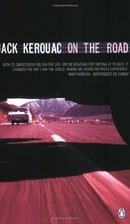
 59
59
 7.3
7.3
 0
0


